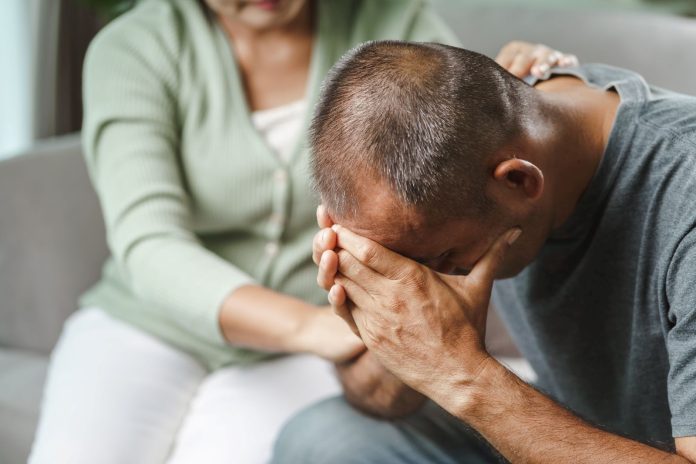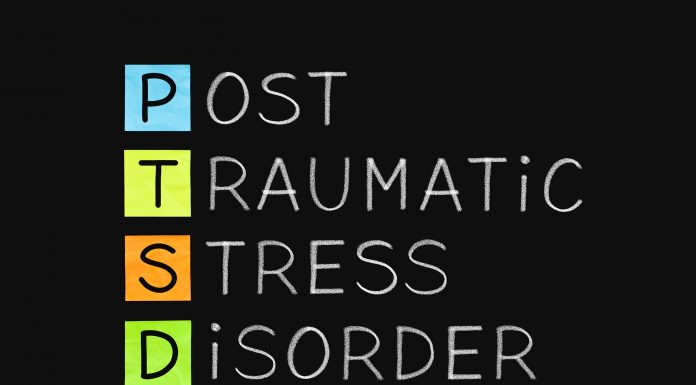Depression doesn’t discriminate; it distressingly impacts individuals of all ages, including seniors, and can significantly strain relationships. As you navigate the golden years, you might experience or encounter depression, a common and serious mood disorder.
It’s not just about feeling blue; it’s a profound sadness that pervades everything, making daily tasks feel insurmountably difficult. But how does this affect your relationships? And, crucially, how can you, or your loved ones, manage depression to maintain healthy, fulfilling relationships?
Let’s embark on this journey to understanding depression in senior relationships, and discover strategies to handle it effectively.
Understanding Senior Depression
As we delve into the realm of senior depression, it’s crucial to grasp that it’s not a normal part of aging, but a serious health issue that needs understanding and attention. You shouldn’t dismiss it as just ‘feeling blue’ or ‘having a bad day’. There’s a lot more to it, and it’s essential to recognize the signs and take action.
Depression in seniors can manifest in many ways. You might notice a loved one losing interest in activities they once enjoyed, or they might complain about persistent feelings of sadness, emptiness, or helplessness. They could be sleeping too much or too little, and you might observe changes in their appetite. They might talk about feeling worthless or exhibit increased irritability.
It’s essential to approach this issue with empathy. If you suspect a loved one is suffering from depression, encourage them to speak about their feelings. Understand that it’s not a personal failing or a sign of weakness, but a real and treatable health problem. Remember, professional help is available and can make a significant difference in a senior’s life. Don’t let the stigma of mental health hold you or your loved ones back from seeking help.
Depression’s Impact on Relationships
Navigating through the turbulent waters of depression can significantly affect your relationships, often causing tension and misunderstanding among partners, family, and friends. It’s not uncommon for you to feel isolated and misunderstood. You might find it difficult to communicate your feelings, which can lead to a breakdown in relationships.
Depression has a knack for reeling you in, making you feel as though you’re alone in your struggle. This can create a divide between you and your loved ones, who may find it challenging to comprehend what you’re going through. It’s crucial to remember that it’s not your fault, and you’re not alone.
Moreover, depression can impact your ability to engage in social activities, which can further strain relationships. You may lose interest in things you once enjoyed, leading to a disconnect with your social circle. Despite these challenges, it’s essential to reach out for help.
Seeking professional help and engaging in open communication with your loved ones can bridge this gap. It’s a challenging journey, but gaining an understanding of depression’s impact on relationships is a crucial step in managing its effects.
Signs of Depression in Seniors
Recognizing the signs of depression in seniors is crucial, as this group often experiences unique challenges that can mask the symptoms of this mental health condition. You might notice that your loved one is feeling persistently sad or hopeless, losing interest in activities they once enjoyed, or struggling with feelings of worthlessness. They might sleep too much or too little, experience a change in appetite, or seem unusually tired or lacking in energy.
Physical symptoms can also be a giveaway. Unexplained aches and pains, digestive problems, or headaches that don’t seem to go away could be signs of depression. It’s also important to keep an eye on their memory. While it’s normal for memory to decline with age, depression can make it worse.
Depression isn’t a normal part of aging. It’s a serious health condition that requires attention. If you’re noticing these signs in a senior you care about, don’t hesitate to reach out for help. Early diagnosis and treatment can significantly improve their quality of life.
Always remember, it’s never too late to seek help and start the journey towards well-being.
How Depression Affects Partners
Have you ever considered how depression in one individual can deeply affect their partner’s well-being and the dynamics of the relationship? It’s not uncommon for the partner of a depressed individual to feel helpless, frustrated, or emotionally drained. These feelings can lead to resentment, creating a cycle of negativity that can strain the relationship.
Depression doesn’t just affect the person suffering from it. It also significantly impacts their partner. You may find yourself shouldering an unfair share of responsibilities, as your partner may struggle with basic daily tasks. This can lead to feelings of burnout and exhaustion.
Your emotional health may also be at risk. It’s common to feel anxious, fearful, or even guilty because of your partner’s depression. You might worry excessively about your partner, or blame yourself for their condition. There’s also the risk of ‘caregiver fatigue’, a condition characterized by physical, emotional, and mental exhaustion.
Understanding these effects is crucial for maintaining a healthy relationship. It’s important to seek support, both for your partner and yourself. Remember, it’s not selfish to take care of your own well-being. It’s necessary. With empathy and professional help, you can navigate this challenging time together.
Communication Strategies for Depressed Seniors
While it’s crucial to understand how depression impacts relationships, it’s equally important to know how to effectively communicate with seniors battling depression. Your approach can make an immense difference in how they cope.
Firstly, it’s essential to be patient. Depression can affect seniors’ ability to process and respond to information. Don’t rush them or show frustration. Instead, give them the time they need to express themselves clearly.
Next, always strive to listen actively. This means not just hearing their words, but understanding their feelings and perspectives. Avoid interrupting or offering unsolicited advice. They may just need someone who’s willing to listen and empathize.
Remember, it’s not your job to fix their depression. You’re there to provide support. When they’re ready to talk about their feelings, be open and accepting. Don’t dismiss or minimize their experiences. Instead, validate their emotions and assure them that it’s okay to feel this way.
Lastly, encourage them to seek professional help. Remind them that there’s no shame in asking for help and that therapists and doctors are there to provide the support they need.
With these strategies, you can help seniors with depression feel heard, understood, and less alone.
Supporting a Partner With Depression
Navigating the waters of a relationship when your partner is battling depression can be challenging, yet your compassion and understanding can play a pivotal role in their journey towards healing. It’s essential to remember that depression isn’t a choice or a sign of weakness, but a serious mental health condition that requires professional help.
Firstly, educate yourself about depression. Understanding the nature of this illness reduces misconceptions, facilitates empathy, and guides you in providing the right support. Depression isn’t about ‘snapping out of it’ and your partner can’t simply ‘choose to be happy’.
Secondly, encourage your partner to seek professional help if they haven’t already. You can’t replace a mental health professional, but you can help them find one. Be patient, it can take time for treatments to work.
Lastly, How Does My Partner or Family Member’s Depression Affect Me? Take care of yourself too. Supporting a depressed partner can be emotionally taxing. It’s not selfish to prioritize your self-care. In fact, you’ll be better equipped to provide support when you’re also looking after your emotional wellbeing.
Seeking Professional Help
When it comes to addressing depression in a relationship, seeking professional help is a crucial step that shouldn’t be overlooked. Professionals like psychologists, psychiatrists, or counselors are trained to diagnose and treat mental health issues, including depression. They can offer a fresh perspective and effective strategies that you or your partner may not have thought of.
Here are some steps you might consider:
- Reach out to your healthcare provider. They can refer you to a mental health specialist.
- Look for a therapist who specializes in depression or couples therapy.
- Join support groups. They provide an opportunity to learn from others who are experiencing similar issues.
- Use online resources. Websites like the American Psychological Association or the National Institute of Mental Health have directories of professionals and helpful materials.
Lifestyle Changes to Manage Depression
In addition to professional help, making certain lifestyle changes can also play a significant role in managing depression in your relationship. It’s about creating a supportive environment not just for your partner, but for yourself too.
Consider regular physical activity. It’s proven to reduce symptoms of depression. You don’t have to run a marathon; a simple walk in the park can suffice. Balanced nutrition is another key factor. Aim for a diet rich in fruits, vegetables, lean meats, and whole grains. These foods provide essential nutrients that can help maintain mental health.
Ensure you’re both getting enough sleep. Insufficient rest can exacerbate depressive symptoms. Cultivate good sleep habits like consistent bedtimes and avoiding electronic devices before sleep.
Social interaction is also crucial. Isolation can fuel depressive feelings. Engage in social activities you both enjoy. It can be a simple dinner with friends or joining a club together.
Lastly, don’t forget the power of relaxation and mindfulness. Techniques such as meditation, yoga, or simple breathing exercises can alleviate stress and promote mental well-being. Remember, it’s not just about managing your partner’s depression, it’s about taking care of your own mental health as well.
Depression Recovery and Relationship Strengthening
As you and your partner begin to implement these lifestyle changes, you’ll likely notice improvements in managing depression, and this can lead to an important next phase: strengthening your relationship during the recovery process. This phase is crucial as it not only aids in sustaining the recovery but also enhances your bond with your partner.
Here are some strategies you may find helpful:
- Open Communication: Talk about your feelings and experiences. It’s important to be honest, even if it’s difficult.
- Mutual Support: Stand by each other during these challenging times. The journey is easier when you’re not alone.
- Shared Activities: Engage in activities you both enjoy. This can help in creating positive memories together.
- Professional Help: Don’t hesitate to seek assistance from therapists or support groups. They can provide valuable tools and strategies.
























